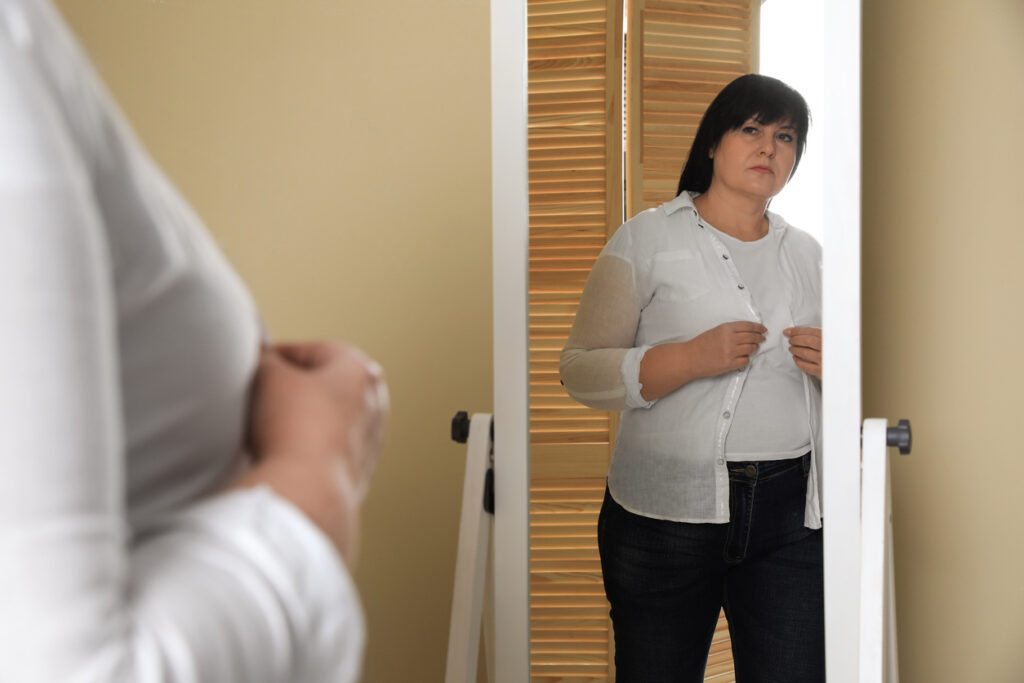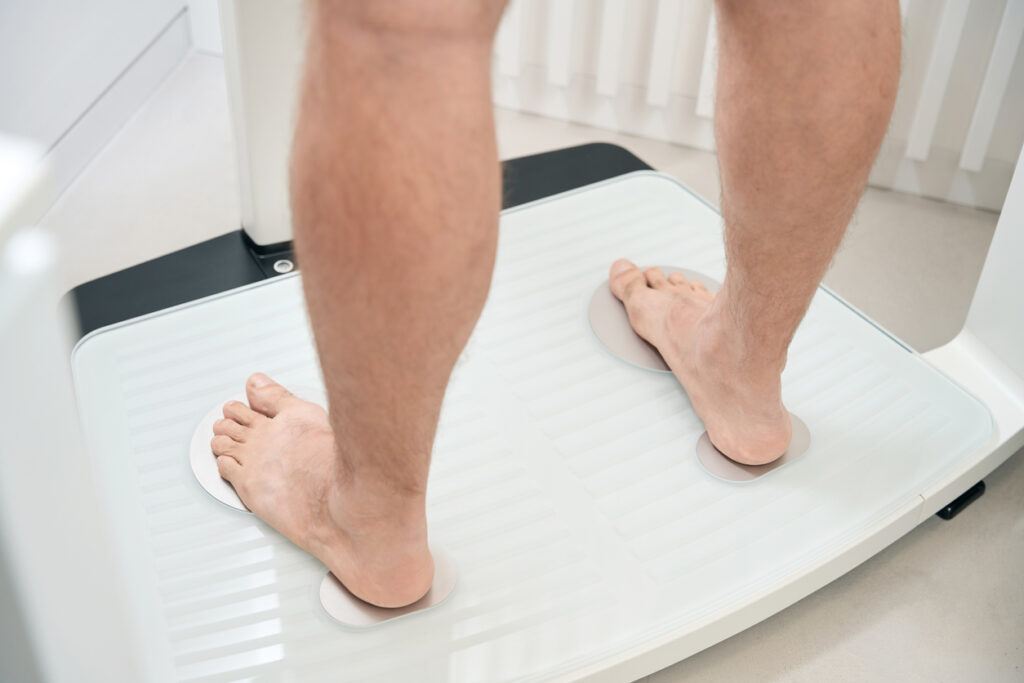These harmful behaviors could be ruining your self-esteem and keeping you from ever feeling confident in your own skin.

You may not even realize it, but the things you do every day might be sabotaging your self-esteem little by little. These aren’t dramatic or obvious actions—they’re often subtle habits that feel normal or even responsible. Yet, when done repeatedly, they can carve deep grooves of self-doubt and discontentment. The world around you hasn’t made it easy to appreciate your body either. We’re constantly surrounded by impossible beauty standards and airbrushed ideals that reinforce the belief that we’re never quite good enough as we are.
The good news? You’re not stuck. When you begin to recognize these behaviors for what they are—learned, damaging patterns—you open the door to self-compassion and genuine confidence. You don’t need to completely overhaul your life overnight. But letting go of even a few of these habits can bring immediate relief and build a foundation for authentic self-acceptance. So if you’re tired of feeling uncomfortable in your own skin, read on and learn what’s been holding you back—and how to let it go.
1. You Criticize Yourself in the Mirror Like It’s Your Job

Each time you stand in front of the mirror and focus only on your flaws, you reinforce a habit that damages your self-worth. You might not even realize you’re doing it—it’s that automatic scan of every wrinkle, bulge, or blemish. This repeated pattern wires your brain to notice only the negative and ignore the beauty that exists in the whole picture. It doesn’t help that we’ve been taught to strive for perfection, but perfection is a myth that keeps us chasing forever. You deserve to look at your reflection without judgment, without shame, and without that internal sigh of disapproval.
Instead of launching into criticism, make it a practice to pause and find something—anything—you like. It might be the twinkle in your eye, the way your sweater fits, or simply the fact that you showed up for yourself that day. These small shifts matter. They retrain your focus and build a foundation of appreciation. It’s not about faking confidence—it’s about choosing a different lens. Over time, your reflection can feel more like a friend than an enemy, as reported at PsychologyToday.com.
2. You Compare Yourself to Unrealistic Social Media Images

We scroll through highlight reels and forget they’re just that—carefully curated glimpses into someone’s best lighting, angles, and filters. It’s almost impossible not to compare your unfiltered reality to those glossy images. But this comparison game is rigged. It’s built to make you feel less than, and it’s a trap that leaves you constantly measuring yourself against illusions. The more you internalize those false standards, the more likely you are to feel ashamed of your own body’s natural changes and imperfections.
Your body tells a different story—one of real life, of experience, of resilience. Start being intentional about your digital space. Curate your feed with people who make you feel empowered, who show their stretch marks and their smiles without editing the joy out of them. Remind yourself that confidence isn’t found through comparison—it’s found through connection with your own truth. Your life isn’t a filtered highlight reel, and that’s exactly what makes it beautiful, as stated at HarvardHealth.edu.
3. You Punish Yourself With Exercise Instead of Enjoying It

It’s easy to fall into the trap of viewing exercise as a form of penance, especially when diet culture has taught us that we have to “burn off” our food. If you only move your body to undo your meals or change your size, it becomes an obligation fueled by shame rather than a celebration of what you’re capable of. This mindset makes working out feel like a punishment rather than a gift. You deserve more than that. Movement can be joyful, empowering, and deeply healing—when it’s chosen out of care rather than guilt.
Try exploring forms of exercise that feel playful or nourishing. Go for a walk to clear your mind. Dance in your living room. Take a gentle yoga class that centers you instead of pushing you past your limits. When you move your body from a place of respect, you begin to trust it again. That shift—from control to connection—is where confidence starts to grow, as mentioned at VerywellMind.com.
4. You Think “I’ll Be Happy When I Lose Weight”

It’s tempting to believe that everything will fall into place once you drop a few pounds. We’ve been conditioned to think that happiness lives in a smaller body, but tying your joy to a number on the scale creates a moving target you may never hit. Worse, it teaches you to withhold love and acceptance until you become someone else. That’s not motivation—it’s self-denial dressed up as discipline. And it robs you of the chance to experience life fully right now, just as you are.
What if you stopped waiting and decided to live now? To wear the outfit you love, to take the photo, to go on the date? You’re allowed to want change and still love yourself in the process. You’re not a before picture—you’re a whole person, worthy of joy and respect today. When you free yourself from conditional happiness, you begin to experience confidence in a more grounded, lasting way.
5. You Dress to Hide Instead of Express Yourself

Clothes can be armor, but they can also be a prison. When you constantly choose outfits to blend in or hide your shape, you deny yourself the joy of self-expression. You might think you’re protecting yourself from judgment, but what you’re really doing is reinforcing the belief that your body isn’t worthy of being seen. That kind of shrinking becomes habitual, and over time, you begin to disappear from your own life.
Fashion should be fun. It should be a way of showing the world who you are—not just what you’re trying to hide. Start small if you need to. Choose a color you love, a pattern that lifts your spirits, or an accessory that makes you smile. These choices are about more than fabric; they’re about reclaiming visibility. When you begin to dress in alignment with your personality rather than your insecurities, confidence doesn’t feel like a costume—it feels like home.
6. You Let Numbers Define Your Self-Worth

It’s easy to get caught up in numbers—the ones on the scale, the ones on your clothing tags, or the ones tracking your steps and calories. While these metrics can have value in some contexts, they can also become rulers of your self-worth. When your mood hinges on a single digit, you give that number more power than it deserves. And that power chips away at your confidence one calculation at a time.
Try tuning into how you feel rather than what the numbers say. Are you sleeping well? Do you feel energized, nourished, and emotionally balanced? Those are the metrics that matter. Your body is not a math problem to solve. You’re a whole person, not a spreadsheet. Stepping off the scale and stepping into your life might be the most freeing thing you do for your self-esteem.
7. You Always Put Others’ Needs Before Your Own

Putting everyone else first might sound noble, but over time, it erodes your sense of identity and self-worth. When you never pause to consider your own needs, you lose touch with your desires, your boundaries, and your body. And that disconnection can turn into resentment—not just toward others, but toward yourself for feeling invisible. Confidence can’t grow in someone who feels like an afterthought.
Reclaim your time, your rest, and your nourishment. Let yourself matter. Start with small moments: take a walk alone, make yourself a beautiful meal, or say “no” without guilt. These acts of self-prioritization aren’t selfish—they’re survival. The more you show up for yourself, the stronger your sense of self becomes. And that’s the soil where real confidence begins to bloom.
8. You Surround Yourself With Body-Negative People

You might not realize how much your environment impacts your self-esteem. When the people around you constantly criticize their own bodies or judge others’, it normalizes negativity and comparison. Even subtle comments about “needing to lose weight” or “feeling fat” plant seeds of shame that can grow into deep insecurities over time. You absorb what you’re exposed to, especially when it’s framed as casual or humorous.
It’s okay to outgrow people who stay stuck in self-hatred. It’s okay to steer conversations toward appreciation rather than critique. And it’s more than okay to find new circles—online or in-person—that prioritize acceptance, joy, and compassion. Your relationships should reflect the values you’re building within yourself. When you surround yourself with people who treat their bodies with kindness, you learn to treat yours the same way.
9. You Avoid Photos Like They’re the Plague

Dodging the camera might feel like a way to protect your self-image, but it actually does the opposite. Every time you hide from photos, you reinforce the idea that you’re not worthy of being seen, remembered, or celebrated. You erase yourself from the story of your own life. Years from now, the people who love you won’t care what you weighed or what you wore—they’ll want to see your smile, your eyes, your presence.
Being in photos isn’t about vanity—it’s about visibility. It’s about saying, “I was here. I mattered.” Let yourself be captured in all your realness. Take the silly selfies, pose for the group shots, and stop waiting until you “look better.” You already belong in the frame. And when you see yourself showing up unapologetically, your confidence grows, one snapshot at a time.
10. You Apologize for the Way You Look

The habit of apologizing for your appearance—“I look awful today” or “Ignore my messy hair”—is so common it often goes unnoticed. But every time you do it, you’re reinforcing the belief that there’s something wrong with simply existing as you are. It teaches others to view you through a critical lens and keeps you in a cycle of self-doubt. You don’t owe the world perfection. You owe yourself compassion.
Try replacing apologies with neutrality or gratitude. Instead of saying you “look terrible,” acknowledge that you’re tired or had a rough morning. Better yet, say nothing at all. Confidence doesn’t come from pretending to be flawless—it comes from refusing to shrink in the face of imperfection. You deserve to show up fully, without shame, exactly as you are.
11. You Obsess Over “Fixing” Your Body

The constant search for fixes—new creams, diets, or surgeries—can keep you stuck in a mindset that your body is a problem to solve. This obsession turns into a never-ending project where you’re always just a few changes away from being “enough.” But you don’t need fixing. You need gentleness, understanding, and respect. Your body carries your entire life story, and that deserves reverence, not renovation.
Start asking yourself not what needs changing, but what needs support. Maybe it’s more sleep. Maybe it’s moving in a way that feels good. Maybe it’s simply saying, “I’m okay like this.” The path to confidence doesn’t begin with a purchase—it begins with presence. The more you care for your body without condition, the more you realize it’s already worthy of your love.
